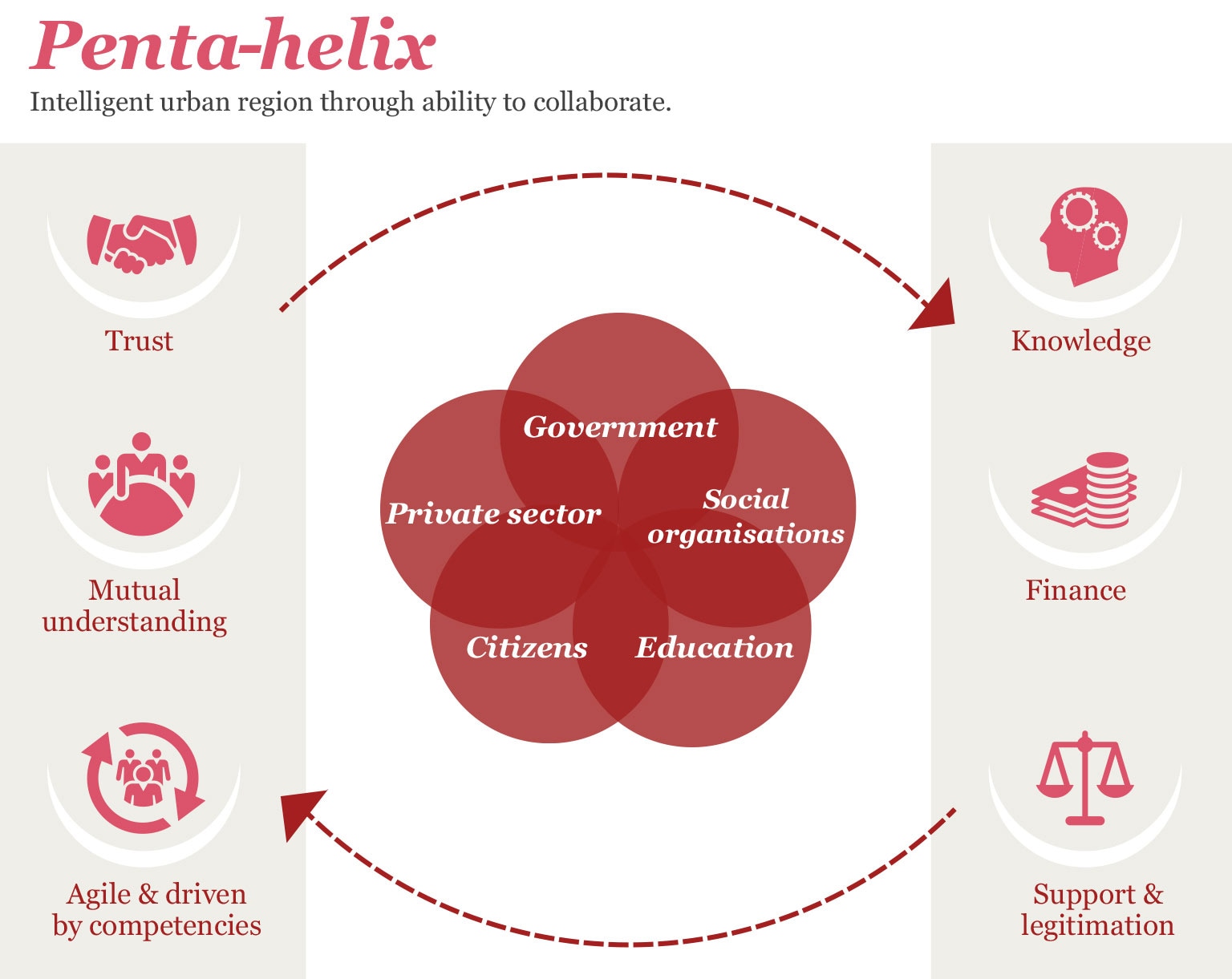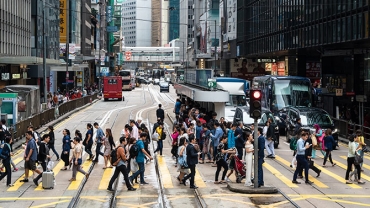
Smart city regions
Smart & safe cities and Urban regions
Urbanization means more crowded areas and challenges like spatial planning, environmental effects, mobility issues and a new social/demographic balance. This means that the physical and social infrastructure will change and new underlying dynamics will evolve. The information society is pushed and integrated in almost all facets of the city. Within this disrupted environment, becoming a smart and safe city does not only mean taking good care of the residents and the way they live, work and their leisure in the city and make this easier, but also taking care of the risks and threats that lay beneath.
Technology-wise there are a lot of possibilities to make cities safer and smarter. But this doesn’t mean that we can use all the technology just in the way we would like to because it has to be implemented, shared and managed by many stakeholders within laws and regulation. For example sharing data to be safe, sounds logical but it is not. Safety is also the feeling of freedom when living in a city. That means privacy cannot be compromised.
Our approach
At PwC we look at possible threats and develop scenarios on how to deal with threats and risks while maintaining a safe city. Becoming a safe city is a matter of smart cooperation next to the use of new technological possibilities. It is not possible to become a safe city on your own. Within a city you need strategic alliances. These cooperation should focus both on prevention and repression to achieve real long lasting results. Besides, it is necessary to share data while ensuring everybody’s privacy.
We conduct a 2way approach for challenges we are facing:
- The first approach focusses on physical safety: safety in vital infrastructure, public transport, housing, climate changes and threads from terroristic attacks, each influenced by the condensed way of living and working.
- The second approach is all about the ‘warm’ side of our life: social inclusion, age friendliness, easiness in personal, economic and social development, which is expressed in the way we feel valued as an individual or group.

Sustainable competition
Successful urban regions – smart urban regions – are able to compete in a sustainable manner by finding a balance between economic development, social cohesion and quality of the living environment. Economic growth can be maximised by incorporating these three objectives in a holistic approach. This was one of the conclusions of international research that PwC has been conducting since 2005, under the titles iUrban and Cities of Opportunity.
Regional ecosystem
This integral approach in ‘smart cities’ requires collaboration based on trust, involving all parties in the regional ecosystem (‘Penta-helix’): the public and private sector, social organisations, learning institutions and members of the general public - both young and old. But this will also require flexibility which allows new approaches to be attempted within new partnerships. Innovative leadership is essential.
Government as versatile facilitator
Within this approach, municipal authorities transform from individual entities to a whole network, and will no longer be the sole service provider – they will act as a versatile facilitator or supply chain manager for the various involved parties. Bonds can be reinforced using new technologies and ‘open’ and ‘big’ data, which will help to improve measurability and predictability. These parties can then work together to resolve social problems and generate value for the public.
We are able to assist you
We are involved in large-scale national and international transformation programmes - from the strategy phase to the execution of smart & safe city projects, which involves collaborating with governments, knowledge institutions and other important public and private stakeholders. Due to our research into smart urban regions, we have been able to acquire a great deal of international knowledge and data, which we would now like to share with you.
We are able to transform casual regional relationships into effective partnerships within new organisations, and can help to give these organisations the required agility. We would also like to share our latest concepts for leadership, governance and financing. How will you be addressing the competitiveness of your region?

Contact us
















